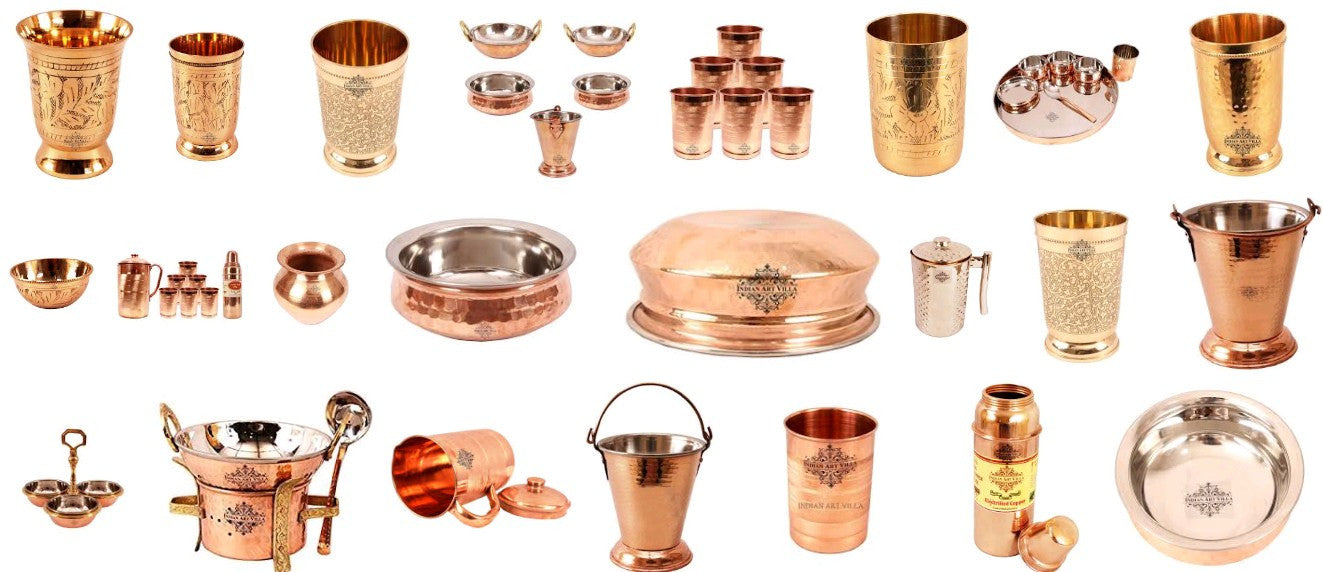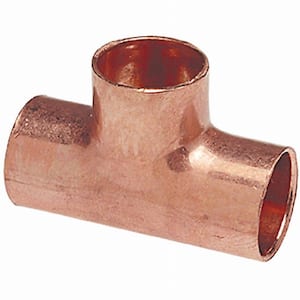Discovering the Diverse Applications of Copper Products in Modern Industries
Copper items have actually established themselves as crucial components throughout a myriad of modern-day markets, mainly as a result of their impressive conductivity, pliability, and resistance to rust. From enhancing the performance of electric systems to playing a crucial duty in renewable resource innovations, the adaptability of copper appears. Its recyclability positions it as a lasting option in manufacturing and electronic devices. As sectors increasingly prioritize development and sustainability, the varied applications of copper call for a closer examination, particularly concerning their potential influence on future technological improvements and ecological techniques.
Electrical Applications of Copper
Copper is a necessary product in the electric industry, making up about 60% of the total need for non-ferrous metals worldwide - Copper Products. Its remarkable electric conductivity, which is nearly two times that of aluminum, makes it the preferred selection for a variety of electrical applications. From circuitry systems in commercial and household structures to high-voltage power transmission lines, copper makes certain efficiency and dependability in electrical power delivery
Along with circuitry, copper is indispensable to the production of electrical components such as transformers, motors, and generators. These components utilize copper's thermal conductivity and pliability, crucial for warm dissipation and reliable efficiency. Copper's resistance to deterioration improves the life-span and toughness of electrical systems, making it an economical remedy in the lengthy term.
The development of renewable resource sources, such as solar and wind power, has actually additionally increased the demand for copper in electric applications. As industries transition in the direction of sustainable energy remedies, copper's function comes to be also a lot more important. Generally, the convenience and performance qualities of copper solidify its condition as a cornerstone product within the electric sector, driving development and efficiency throughout different applications.
Pipes and Piping Solutions
In contemporary plumbing systems, the option of materials considerably impacts both capability and durability. Copper has actually emerged as a recommended alternative due to its unique buildings, consisting of corrosion resistance and antimicrobial features. These attributes make sure that copper piping stays secure and long lasting for transporting potable water, a critical consideration in residential and business applications.
One of the vital advantages of copper in pipes is its capacity to endure heats and pressures, making it suitable for a selection of applications, from hot water systems to heating and cooling down networks. Furthermore, copper's versatility permits much easier installment in complex piping layouts, minimizing the danger of failings and leaks.
An additional noteworthy advantage is copper's lengthy lifespan, frequently going beyond 50 years with correct upkeep. This longevity not just lessens replacement costs yet likewise contributes to sustainable methods by minimizing waste. Copper's recyclability aligns with modern ecological requirements, advertising a round economy within the pipes industry.
Copper in Renewable Power
The convenience of copper expands past pipes applications, playing a vital role in the renewable resource industry. Its exceptional electrical and thermal conductivity makes it a necessary material in the manufacturing and circulation of eco-friendly energy sources, particularly solar and wind power. In solar panels, copper is made use of in photovoltaic or pv cells and wiring, assisting in reliable energy conversion and transmission. Its resistance to corrosion makes sure resilient efficiency, which is vital for making the most find of energy output over time.

Furthermore, as the international demand for electric automobiles (EVs) increases, copper's role in battery systems and charging framework comes to be a lot more considerable. The material's ability to conduct electrical energy efficiently is integral to the efficiency of EV batteries, enhancing range and charging rate.
Copper's Duty in Electronic devices
Electronics manufacturing depends greatly on copper's outstanding buildings, specifically its high electric conductivity and thermal efficiency. These attributes make copper a perfect choice for a wide variety of digital elements, including connectors, circuit boards, and wiring. The metal's capability to efficiently send electric signals makes certain marginal energy loss, which is critical in high-performance digital gadgets.
Moreover, copper's thermal conductivity plays a substantial function in heat dissipation, securing sensitive components from overheating. This is specifically essential in modern-day electronics, where portable layouts bring about boosted heat generation. Copper is additionally favored for its pliability and ductility, enabling it to be conveniently shaped right into elaborate layouts that meet the needs of sophisticated digital applications.
With the surge of consumer electronics, telecommunications, and electrical vehicles, the need for copper in the electronics sector continues to expand. As developments in modern technology develop, copper continues to be essential to achieving higher efficiency and dependability in digital products. Its recyclability even more boosts its appeal, as makers seek lasting solutions without jeopardizing top quality. Hence, copper stays a foundation material in the ever-expanding field of electronics.
Innovative Utilizes in Manufacturing

One noteworthy application remains in additive manufacturing, where copper-based products are used in 3D printing procedures. This Related Site enables the creation of light-weight elements and complicated geometries, specifically in the aerospace and vehicle sectors. In addition, copper's thermal conductivity makes it an excellent option for warm exchangers, improving performance in industrial air conditioning systems.
Moreover, the increase of smart production has actually seen the consolidation of copper in IoT tools, where its conductive abilities sustain sophisticated noticing modern technologies. In the world of sustainable power, copper is critical in the manufacturing of solar panels and wind turbines, promoting a lot more effective power conversion and distribution.
As markets pursue sustainability and advancement, copper's flexibility and efficiency continue to place it as a critical material, driving innovations in manufacturing and adding to the development of smarter, a lot more reliable products.
Final Thought
The essential function of copper in renewable power and its necessary feature in electronics underscore its importance in advancing lasting practices. Jointly, these applications highlight copper's important payment to technological progress and commercial efficiency in contemporary society.
From boosting the performance of electrical systems to playing an important function in eco-friendly energy modern technologies, the flexibility of copper is noticeable. As markets increasingly prioritize innovation and sustainability, the diverse applications of copper require a closer examination, specifically regarding their possible influence on future technological developments and ecological methods.
The development of sustainable power sources, such as solar and wind power, has additionally enhanced the need for copper in electrical applications. On the whole, the versatility and efficiency attributes of copper strengthen its condition as a keystone material within the electric field, driving development and performance across numerous applications.
The flexibility of copper expands beyond plumbing applications, playing an important function in the renewable energy field.